A priceless collection of rare photographs and memorabilia from the Taj Mahal Palace's archives is now open not just to its guests but also to the public. Snapshots from the city's timeline, and frames of celebrities and leaders, while at the iconic hotel, grace this dynamic ode to Mumbai
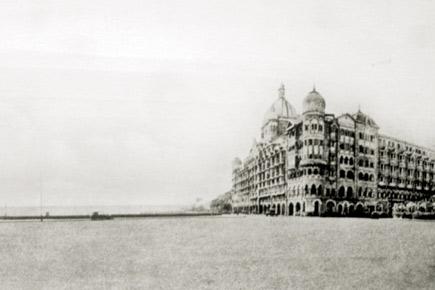
Taj Mahal Hotel
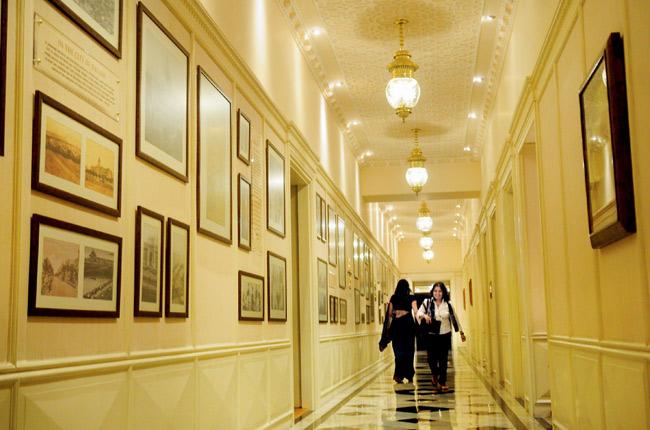
The new archival corridor and show windows were inaugurated on July 29, 2014, to mark the birth anniversary of JRD Tata. PIC/BIPIN KOKATE
ADVERTISEMENT
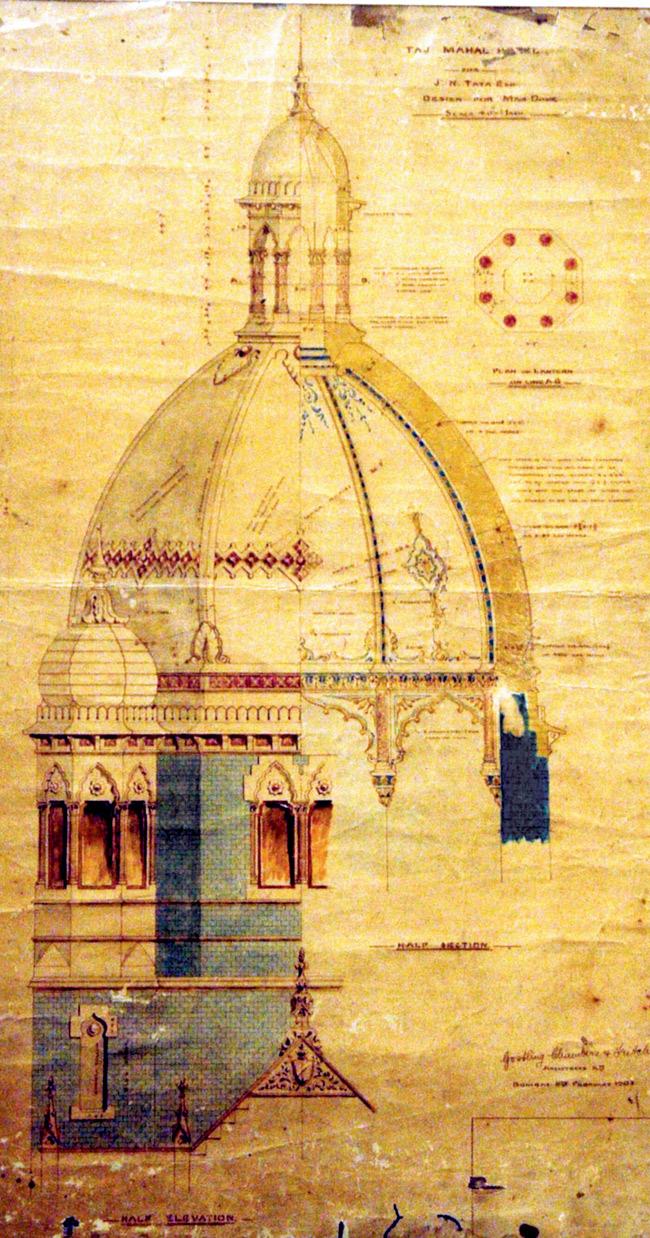
WA Chambers’ design for the modified dome: Official local history records that JN Tata’s radical English friend,
WA Chambers, was the Indian Hotel Company’s ‘Engineer and Architect’. But that is only half the story, for the original design of the Taj was undoubtedly the work of a Hindu engineer named Raosaheb Sitaram Khanderao Vaidya, assisted by one DN Mirza, a Parsi. Sitaram Khanderao had served a long apprenticeship under the great master-builder of Victorian Bombay, FW Stevens.
Pics and text source: The Taj Magazine & Taj Memories
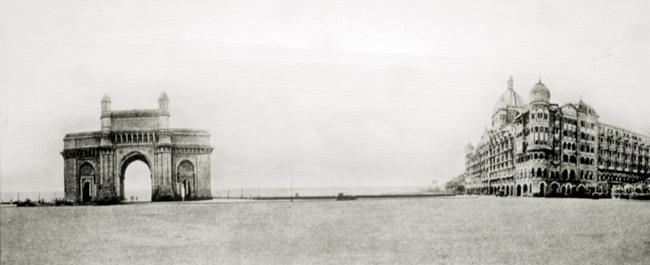
An unusual panorama of the Apollo Bunder, showing the Gateway of India and the Taj from the early 1940s. The Gateway was a latecomer completed in 1926 to commemorate the earlier visit of the King Emperor George V.
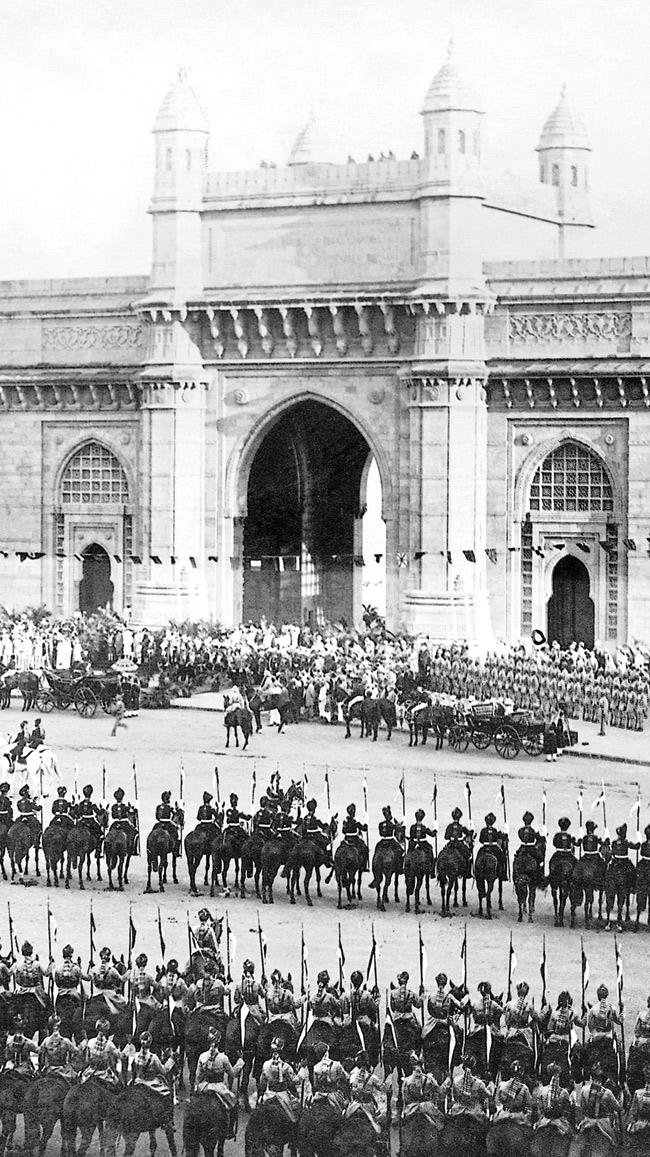
This photo from the Taj Mahal Palace shows the last British troops leave India from the Gateway, in 1948
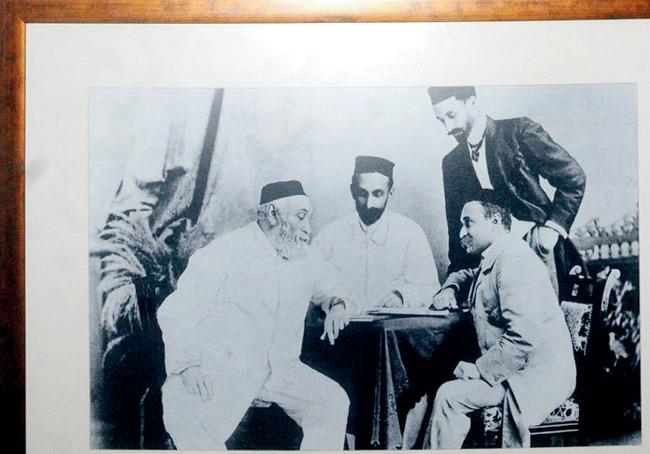
One from the Tata family photo album: The big four — JN Tata and his three partners, his sons Ratan and Dorab (seated) and his cousin ‘RD’, father of JRD Tata. The archival corridor measures 90 feet and 18 inches.
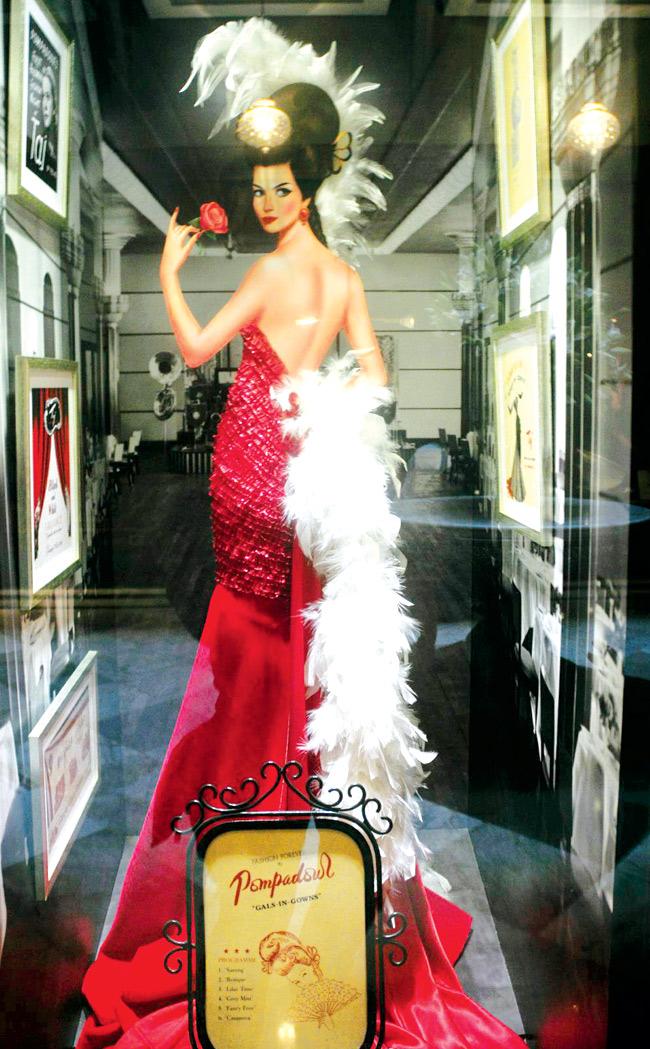
It’s showtime folks!
This show window, as part of the archive, is a tribute to Madame Pompadour’s legacy at the Taj Mahal Palace. Catherine Courtney began her long association with the Taj as a young cabaret artiste in 1931 . Her talents were quickly spotted and she was performing every week. ‘The Pompadour Follies’ were an enormous success and the Taj did very well out of it. Madame Pompadour also opened her boutique at the Taj resplendent with her immaculate sense of style. Many fashion events were held with ladies modelling dresses of her design. For her efforts in introducing haute couture at the Taj, she was presented a gold cigarette case on behalf of Sir Dorab Tata.
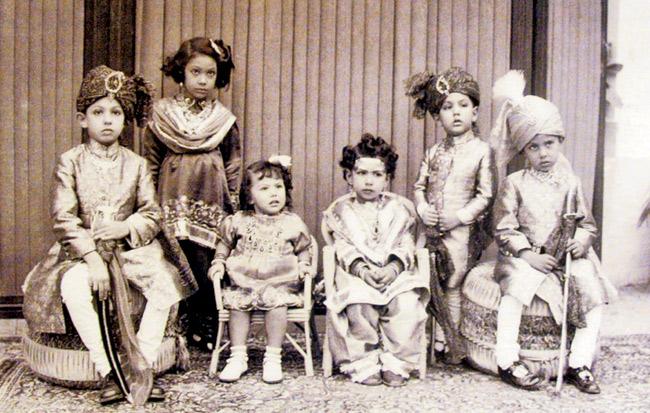
Royal guests at the Taj: Princess Shahvar Sultan of Cambay (third from left) with her brothers, sisters and cousins
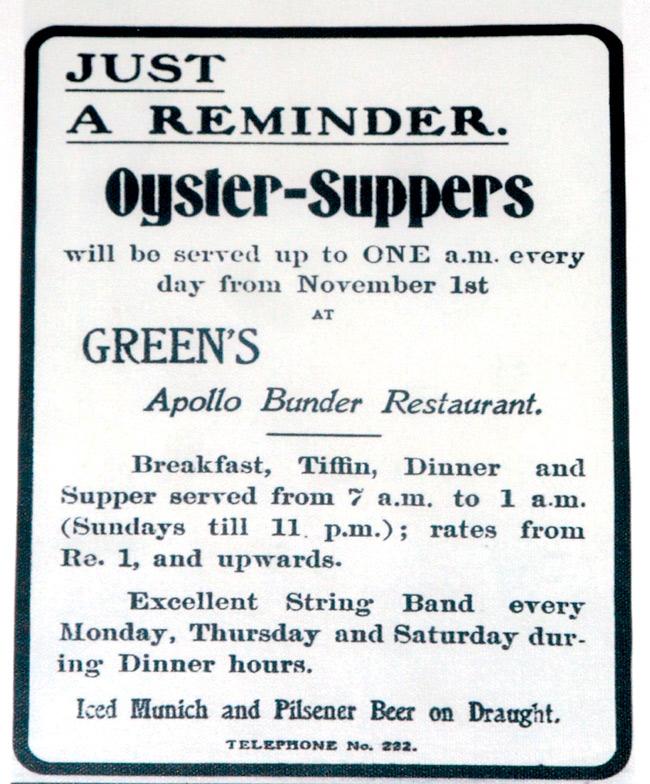
Oyster Salad for Rs 1!
Green’s came up for auction, and in November 1904, was bought by the Indian Hotel Company. With the Taj’s cold storage facilities at its disposal, Green’s was now able to offer its customers kippers and other European delicacies, all year. Notices in Bombay’s newspapers proclaimed Green’s to be ‘famous for the exceptional quality of its celebrated Cumberland Hams, Wiltshire Bacon and best English Cheese’. Oyster-Suppers were advertised and became popular, as did the English beer and stout served at its bar, with the result that Green’s became a place to eat and drink and ‘get away from it all’.
 Subscribe today by clicking the link and stay updated with the latest news!" Click here!
Subscribe today by clicking the link and stay updated with the latest news!" Click here!






